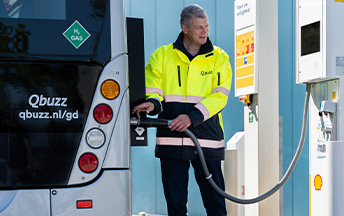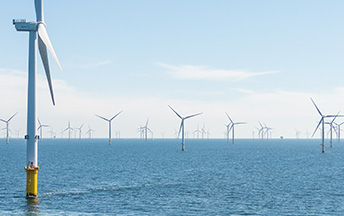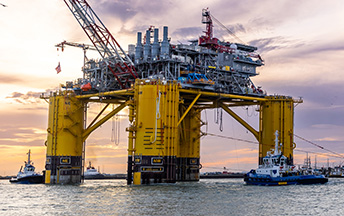Climate litigation and activism
During the past decade, environmental activists have increasingly used litigation to hold governments and companies accountable for the effects of climate change on individuals and communities around the world. Shell is involved in more than 20 such court cases worldwide.
In March 2022, we appealed a ruling by the District Court of The Hague in the Netherlands from May 2021, which requires Shell to reduce emissions further and faster than even the most ambitious energy scenarios published for the sectors in which we operate. As we wait for the outcome of the appeal, we are taking active steps to comply with the ruling. We believe the actions we are taking to deliver our energy transition strategy are consistent with the court ruling and its end of 2030 timeline. This includes the investments we are making in low-carbon fuels, renewable power, and hydrogen; in addition to making changes to our upstream and refinery portfolios.
In February 2023, environmental law group ClientEarth filed a claim with the High Court in England against Shell plc and the current Board of Directors challenging the board’s decision-making regarding Shell’s climate strategy. This is a derivative action brought by shareholders on behalf of the Company. The High Court must grant permission for ClientEarth to proceed with the claim. Investors representing less than 0.2% of Shell’s total shareholder base have sent letters supporting the claim. We do not accept ClientEarth’s allegations. We believe our directors have complied with their legal duties and have, at all times, acted in the best interests of the Company.
We agree there is an urgent need to change the world’s energy system. We believe it is for governments to determine the right trade-offs for society and to put in place the policies that bring about fundamental changes in the way society consumes energy. Litigation does not enable the global cooperation required to change both supply and demand for energy, as well as the infrastructure supporting the use of energy.
Shell is determined to play its part in helping to change the world’s energy system. We believe our climate targets are aligned with the more ambitious goal of the UN Paris Agreement on climate change: to limit the increase in the global average temperature to 1.5oC above pre-industrial levels. Importantly, we have already delivered results: Shell reduced Scope 1 and 2 emissions under our operational control in 2022 by 30% compared with 2016.
Some shareholders, such as Follow This, have also called on us to set even more ambitious targets to reduce Scope 3 emissions. This is also a focus of some of the climate litigation against us.
Shell would, among other things, have to decrease its sales of oil products and gas to reduce its Scope 3 emissions in line with the Follow This resolution. Doing so, without changing demand and the way our customers use energy, would effectively mean handing over customers to competitors. This would materially affect Shell’s financial strength and limits its ability to generate value for shareholders. It would also reduce our ability to play an important role in the energy transition by working with customers to reduce their emissions.
We are making progress in implementing our energy transition strategy, which we believe is the best for society, our customers and our shareholders.
Read more about why Shell has appealed the District Court ruling (in Dutch and English) www.shell.nl/media/nieuwsberichten/2022/waarom-shell-in-hoger-beroep-gaat.










